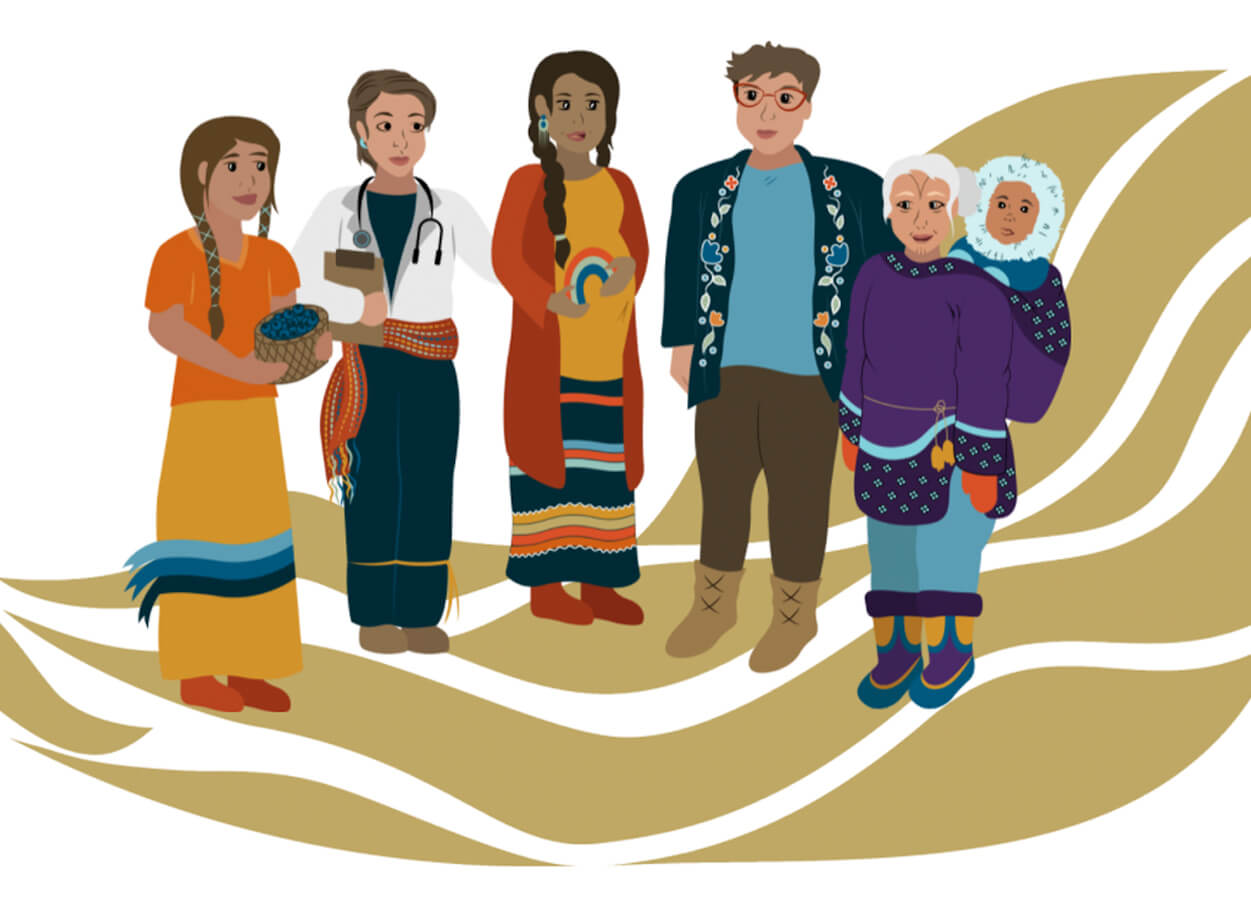The Indigenous Maternity Experiences Project
This month, we are shining a spotlight on our Indigenous Maternity Experiences Survey research.
This month, we are shining a spotlight on our Indigenous Maternity Experiences Survey research. This research is a two-year project funded by the Social Sciences and Humanities Research Council’s (SSHRC) New Frontiers in Research fund, in partnership with Dr. Jennifer Leason at the University of Calgary. that the project aims to engage Indigenous people, communities, health care providers, and leadership in a conversation about how we could create an Indigenous Maternity Experiences Survey that is more culturally and contextually relevant.

In 2009, the Public Health Agency of Canada released the Canadian Maternity Experiences Survey. The survey included over 300 questions on topics related to women’s perceptions, practices, and experiences before pregnancy; during pregnancy, labour, and birth; and in the early months of parenthood. However, this research excluded First Nations women living on-reserve, incarcerated women, women whose children were not living with them or apprehended at the time of the survey, and many other voices. This research also failed to include Indigenous maternal teachings and unique and complex ways of knowing, or to account for colonialism, racism, and sexism policies and practices, and the social contexts in which Indigenous Peoples live.
This is where our research comes in. To improve maternal health outcomes and create a meaningful survey, our research team decided we need to invite Indigenous life-givers of all genders from across communities and health care professions to help shape our research from the ground up. This year, we held virtual sharing circles with birth and surrogate parents, health care providers, birth partners, family and community members, Elders, and two-spirit, trans, and gender-diverse parents. We spoke with a total of 54 people from many provinces, communities, and territories about their experiences, their strengths, their priorities, and their recommendations for Indigenous maternal health care.
This is the first step in a long conversation about the impacts of ongoing colonization on maternal health, health (in)equity, and the need for cultural safety and resurgence. It will help inform the development of an Indigenous maternity experiences survey.
Through this research, we hope to identify ways to better support and advocate for Indigenous parents, families, and communities throughout their pregnancy and early months of parenting. Our research team will work hard to honour and mobilize the experiences and perspectives shared in this project to make a difference in our communities and our health care systems. We are grounded and driven by the Truth and Reconciliation Commission of Canada’s Calls to Action, which emphasize the need to focus efforts on intersecting indicators such as “infant mortality, maternal health, suicide, mental health, addictions, life expectancy, birth rates, infant and child health issues, chronic disease, illness and injury incidence, and the availability of appropriate health services” (TRC 2015:3).
The most interesting part of our work is also the most important: seeing the power of Indigenous-led, community-based research—research that not only mobilizes people’s unique experiences to help inform policy, but also brings people together to share information and resources, and find healing, solidarity, friendship, and community.
Subscribe to our e-mail lists
Shining the Spotlight Newsletter is published monthly.